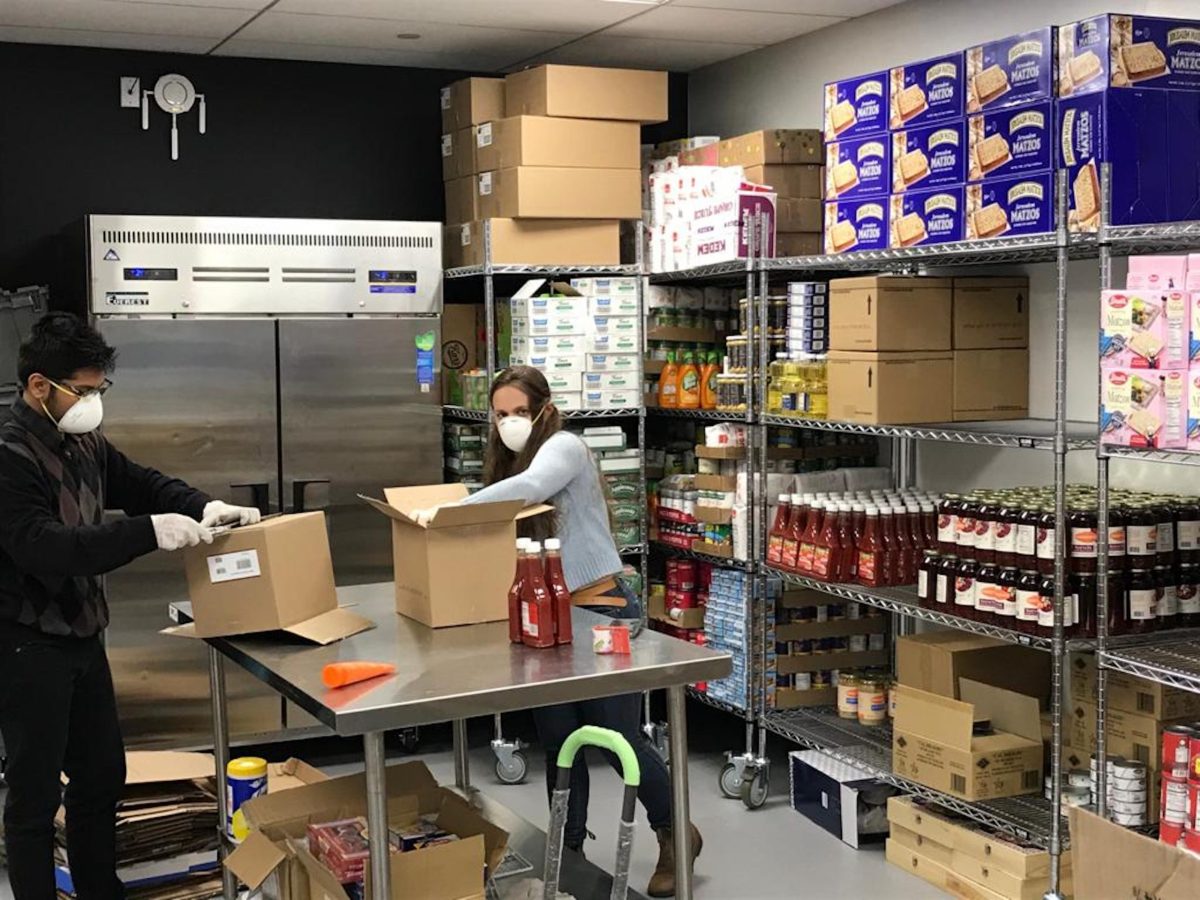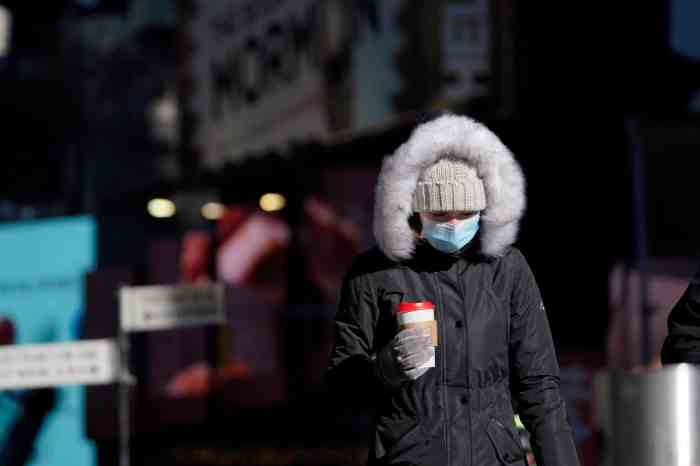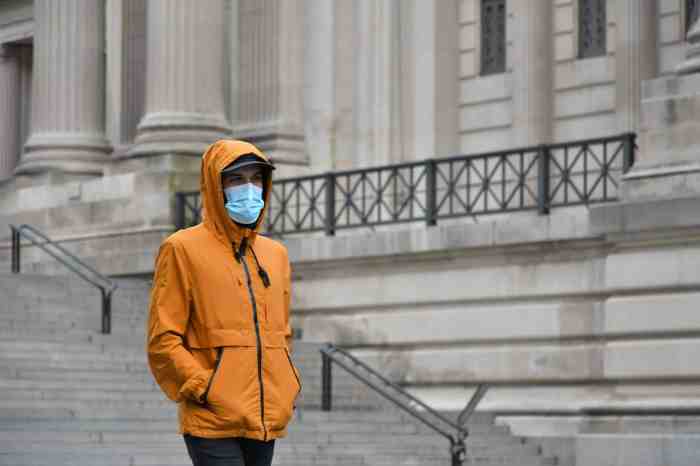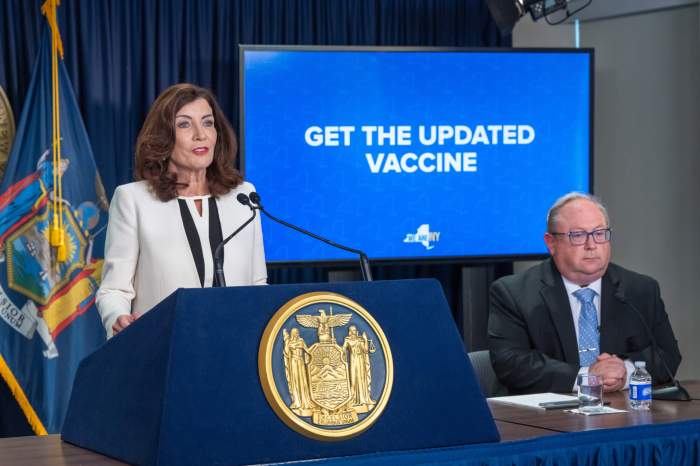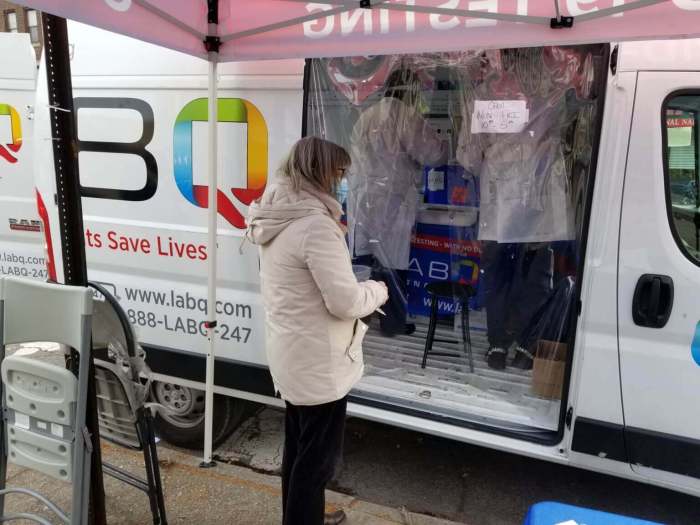Members of the City Council are requesting that the city release $25 million in emergency funding and the state do the same to fund struggling food banks and assistance programs that many of the newly unemployed depend on during this COVID-19 crisis.
Emergency food organizations led by the Met Council for Jewish Poverty and City Harvest, have been sounding the alarm in recent days over increased costs for food, lack of donations and pressure on food banks and decreased numbers of volunteers, many of whom are 50 and above and are quarantined because they are more at risk from the contagion.
Advocates for the food programs say 32 percent of the pantries and kitchens have closed because of a lack of food and volunteers. Both City Harvest and Met Council say they have had to hire new drivers and pay bonuses for the added risk during the COVID-19 crisis.
Speaker Corey Johnson, along with the council delegation, is calling on Mayor Bill de Blasio to release emergency funding to struggling food banks and food assistance programs during the coronavirus pandemic (COVID-19) to halt a looming hunger crisis. The Council is also leaning on the Governor and state legislature to join in supporting the vital food programs.
The food programs are in focus at a time when nearly half a million people have lost their jobs and income and will be financially unable to even feed their families during the crisis.
Met Council officials say $50 million will provide funding for over 19 million meals, which will allow for 2.1 million balanced and healthy food packages each consisting of nine meals per USDA guidelines. Met Council CEO David Greenfield has been appealing to the state for additional funds as donations have dropped off and expenses have nearly tripled.
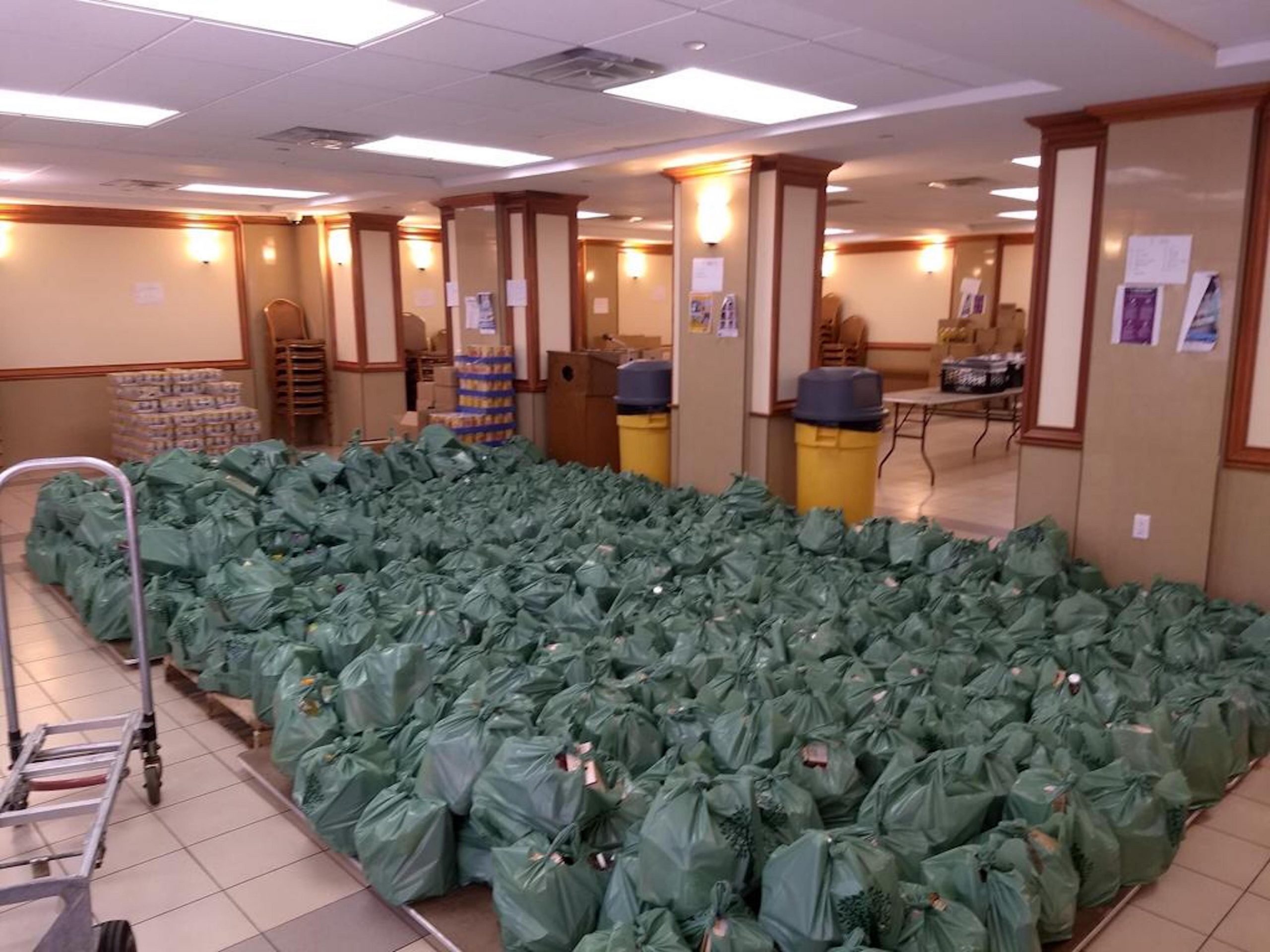
The reason behind added expenses includes the loss of volunteers, increased food costs due to competition with big supermarket retailers, vendors becoming unreliable and unable to deliver, added costs of keeping workers safe including masks, hand sanitizers, gloves and other items.
The Council is also in discussion with many of the city’s leading philanthropic organizations to get private money to food banks and food assistance programs. The Council has a history advocating for food programs to serve the most vulnerable New Yorkers through the city budget process and can connect worthy groups to philanthropic organizations.
The COVID-19 pandemic has created a food crisis in New York City, leaders pointing to elderly New Yorkers, homebound individuals, students dependent on school meal plans, and others in need must have reliable food services.
“The richest city in the richest nation in the world is on the cusp of a hunger crisis,” said Council Speaker Johnson. “We must act now to quickly get relief to our food providers. This is an emergency and time is of the essence. Undoubtedly we will need more funding in the coming weeks, but it’s imperative that we begin now to stop more of our providers from shutting.”
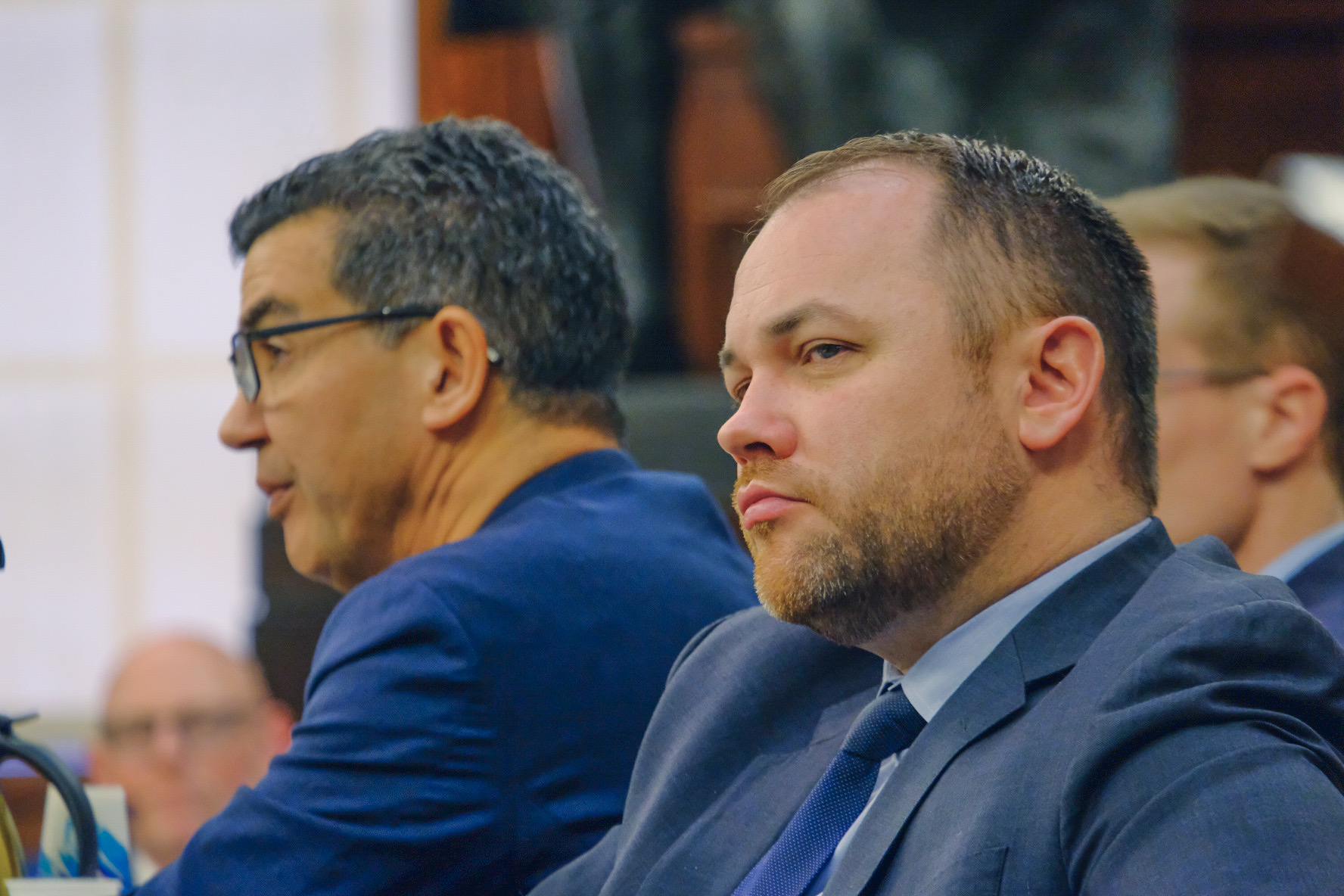
Greenfield said they have had a 57 percent increase in demand for food in the last week and their costs continue to rise. He commended the City Council for backing his other groups providing food to New Yorker’s.
“This is an emergency food crisis for vulnerable New Yorkers,” Greenfield said. “If government doesn’t act, within days most of New York’s food pantries will close. That is an impending a disaster. Needy homebound seniors literally don’t have access to food. People who have lost their jobs are calling us and begging for food.”
Nicholas Buess, associate director of Mobilization and Policy at the Food Bank for New York City, said emergency funds are needed as low-income seniors are unable to leave their homes.
“We stand with the City Council on calling for the release of emergency funds to support our city’s anti-hunger response during this public health and economic crisis,” Buess said. “From low-income seniors unable to leave their homes to hourly workers missing paychecks and seeking support for the first time in their lives, there has been a surge in demand across our network. It is imperative that our government partners continue supporting the emergency food network so that New Yorkers can put food on the table for themselves and their families during this crisis.”
Others hit by the crisis is Citymeals on Wheels, who deliver 200,000 meals at present, but project having to provide 300,000 more as the economic issues worsen.
“Citymeals and other non-profits are stepping up to provide food where it is most needed. To address this unprecedented challenge, the City and state must release funds to help ensure the stability of this vital lifeline,” said Beth Shapiro, Executive Director Citymeals on Wheels.
Jilly Stephens, CEO of City Harvest said their costs are rising too and government assistance will be needed to assure continued city nutrition.
“We are on the front lines to keep New Yorkers fed during this public health emergency. We are grateful to the City Council and Speaker Corey Johnson for their support and leadership to ensure we have the resources we need to feed our neighbors,” Stephens said.
Funding for these organizations is all but ensured as the state will be delayed in collecting income taxes due to extension for filings and reduction in sales tax revenues throughout the state due to less public spending.



